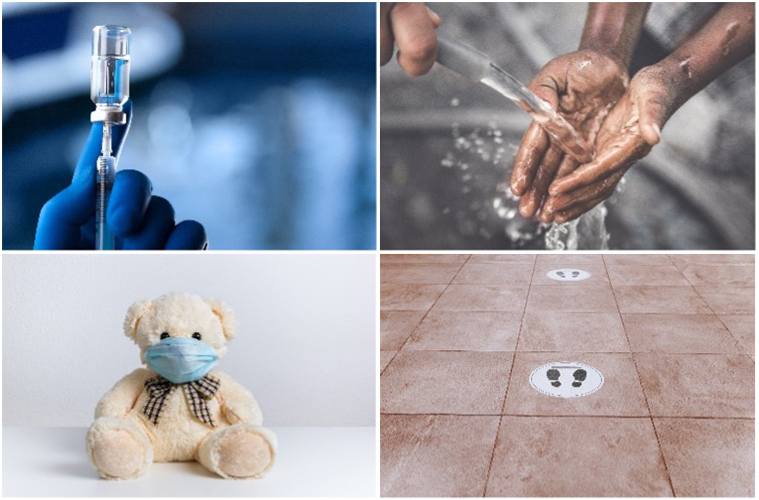By Nancy Drapeau, IPC, CEIR Vice President of Research
CEIR is grateful to John Cordier, CEO of Epistemix for sharing his expertise on health risk management best practices at a recently held CEIR webinar. If you missed it, no worries! Download it here. The webinar is available at no cost as a public service to the industry.
Why Did We Run this Webinar?
 Let me share a personal story. My experience during a mid-July vacation in Iceland triggered the idea of having John update the industry on health risks organizers and suppliers need to monitor, and the importance of having an ongoing health and safety risk management plan. COVID is today’s challenge, though other communicable health risks are inevitable in a world where people travel globally. Think of the recent past – H1N1, Asian Bird Flu and SARS to name a few. And let’s not forget transportation of goods and food to market. It is a global supply chain. This Fall and Winter, the Centers for Disease Control and Prevention (CDC) expects a tripledemic of COVID, flu and RSV. Health risks are part of the rhythm of our global society. And so having a health and safety risk management plan in place should be part of standard operating procedures for any exhibition organizer to monitor risks and have plans in place to implement as needed. Such an approach helps build trust among participants that events are consistently run safely. It minimizes negative outcomes. It is good for business.
Let me share a personal story. My experience during a mid-July vacation in Iceland triggered the idea of having John update the industry on health risks organizers and suppliers need to monitor, and the importance of having an ongoing health and safety risk management plan. COVID is today’s challenge, though other communicable health risks are inevitable in a world where people travel globally. Think of the recent past – H1N1, Asian Bird Flu and SARS to name a few. And let’s not forget transportation of goods and food to market. It is a global supply chain. This Fall and Winter, the Centers for Disease Control and Prevention (CDC) expects a tripledemic of COVID, flu and RSV. Health risks are part of the rhythm of our global society. And so having a health and safety risk management plan in place should be part of standard operating procedures for any exhibition organizer to monitor risks and have plans in place to implement as needed. Such an approach helps build trust among participants that events are consistently run safely. It minimizes negative outcomes. It is good for business.
Our mid-July trip to Iceland was magical. Highly recommend it. It is a country like no other. A destination for the adventurous. But one thing I noticed, including us, was that most people conducted themselves as they would pre-COVID – no masks, no noticeable use of antiseptic for handwashing, no sharing of antiseptic wipes on the flight back from Iceland. We didn’t use antiseptic wipes in our hotel room as we used to do. The sense was, we don’t have to worry about COVID. It’s gone! And I wonder how vigilant airlines, hotels, restaurants, car rental agencies, tourist attractions and other businesses are now in following recommended sanitation and cleaning regimens. We traveled around the country, ate breakfast in group settings. There were many groups traveling by bus, land visits by cruise ship travelers and self-driving tourists like us. Throughout the trip, I noticed regular coughing, sometimes coughs that sounded uncontrollable. I kept my distance but there is only so much that will do with an airborne virus. I don’t know how well-ventilated buildings are. Air conditioning was not available in our hotels and restaurants, as summer is quite brief. Buildings I am guessing are built tightly in Iceland, designed to keep heat in. Tight buildings suggest limited air flow, how is air filtered? Well, at the end of the trip, my husband tested positive for COVID for the first time. Yes, we masked up thereafter, remained very careful. Upon return to the U.S., two days later, I tested positive. Paxlovid eclipsed the illness, though it wasn’t fun for five days.
So, given this experience, it made me think, are we letting our guard down too soon? Should the events, travel and hospitality industries remain more vigilant? A COVID wave began in late August as children returned to school. Hopefully herd immunity, vaccines and antiviral medications will limit negative outcomes for those who contract the illness. No one expects the economy to lock down, it would not be tolerated. Events will continue to happen. We have a track record of running events safely during the pandemic.
Though COVID is still around. It isn’t over. The industry has a responsibility to be vigilant and apply known, effective approaches to minimize the impacts health risks present. It’s the right thing to do and is good for business! As well, to support Diversity, Equity and Inclusion efforts, these approaches enable immunocompromised individuals to safely participate and enjoy all the fantastic B2B exhibitions along with the rest of us. Perhaps this is a silver lining from the devastating pandemic, a way forward to safely convene professional communities even during health challenges via implementation of proven health risk management approaches.
Epistemix was a go-to resource for the B2B exhibition industry during the COVID-19 pandemic. Their accurate simulations enabled organizers and destinations to plan and successfully implement health and safety mitigation approaches at events held during the pandemic. Today, their simulation expertise continues to be used for health and other business decisions by major public and private entities. I highly recommend taking advantage of the great information presented in this free webinar.
Go here to access the webinar on-demand. Visit the CEIR website for more invaluable research and data!
About the Author

Nancy Drapeau, IPC. A 30-year market research veteran with more than 20 years in the business-to-business exhibitions industry. As CEIR’s Vice President of Research, Ms. Drapeau conducts industry wide studies and reports on current trends in the exhibition industry. In 2019, she was named to BizBash’s 1,000 Most Influential People in Events list. She holds a BA in Government from Georgetown University and a Master’s in Advanced European and International Studies from l’Institut Européen des Hautes Études Internationales. She is an AC Nielsen Burke Institute trained focus group moderator. She is a well-respected industry speaker and an active member of the Industry Insights Association and member of the Event Industry Council’s (EIC) Research & Advocacy Task Force. She lives in Maine, with her husband and border collie named Moxie.
